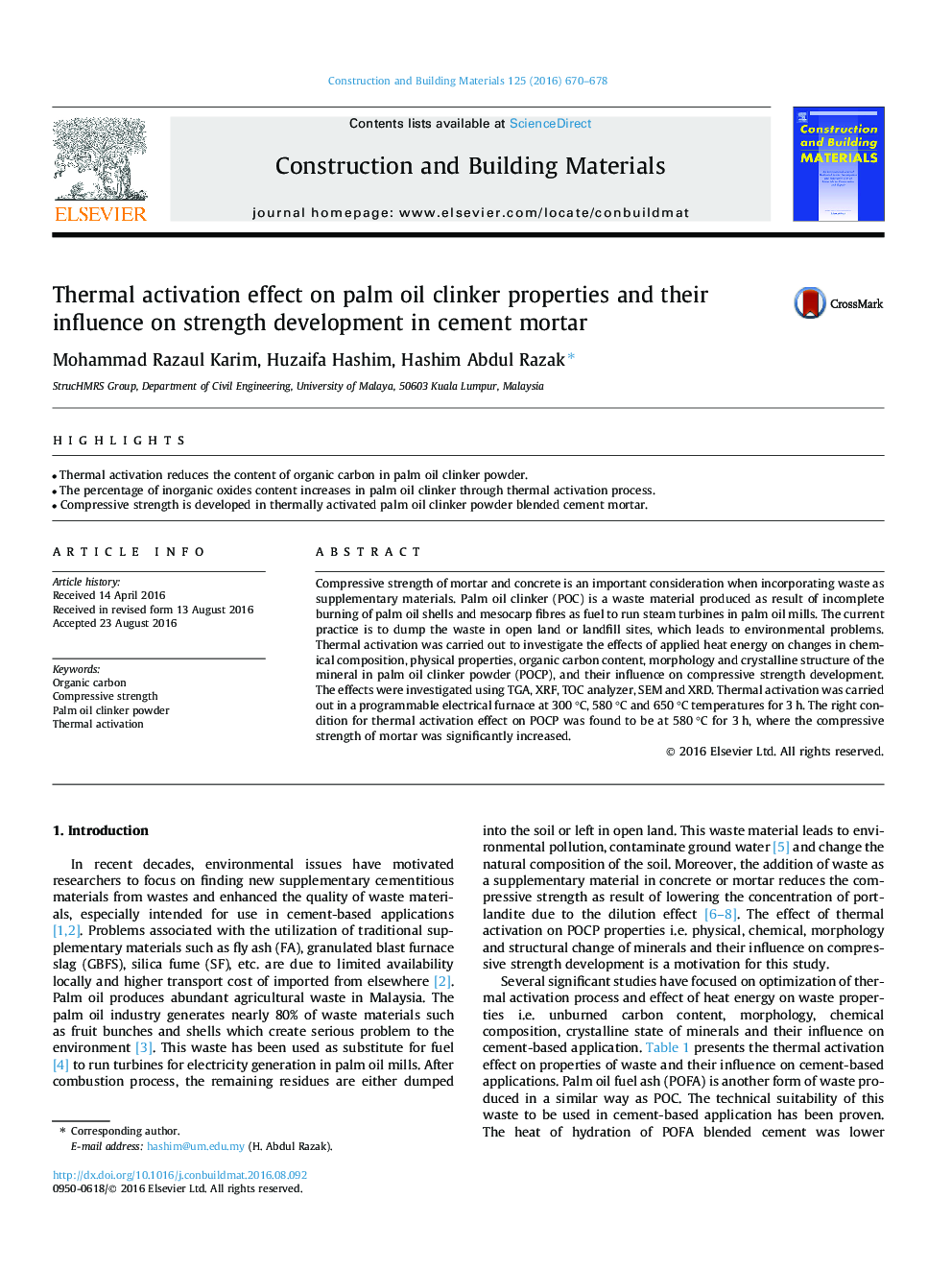| Article ID | Journal | Published Year | Pages | File Type |
|---|---|---|---|---|
| 4918654 | Construction and Building Materials | 2016 | 9 Pages |
Abstract
Compressive strength of mortar and concrete is an important consideration when incorporating waste as supplementary materials. Palm oil clinker (POC) is a waste material produced as result of incomplete burning of palm oil shells and mesocarp fibres as fuel to run steam turbines in palm oil mills. The current practice is to dump the waste in open land or landfill sites, which leads to environmental problems. Thermal activation was carried out to investigate the effects of applied heat energy on changes in chemical composition, physical properties, organic carbon content, morphology and crystalline structure of the mineral in palm oil clinker powder (POCP), and their influence on compressive strength development. The effects were investigated using TGA, XRF, TOC analyzer, SEM and XRD. Thermal activation was carried out in a programmable electrical furnace at 300 °C, 580 °C and 650 °C temperatures for 3 h. The right condition for thermal activation effect on POCP was found to be at 580 °C for 3 h, where the compressive strength of mortar was significantly increased.
Related Topics
Physical Sciences and Engineering
Engineering
Civil and Structural Engineering
Authors
Mohammad Razaul Karim, Huzaifa Hashim, Hashim Abdul Razak,
